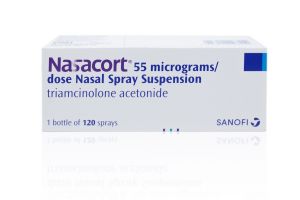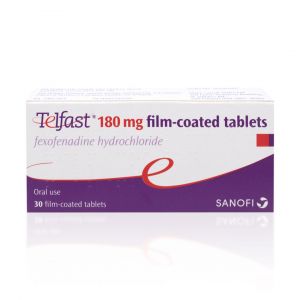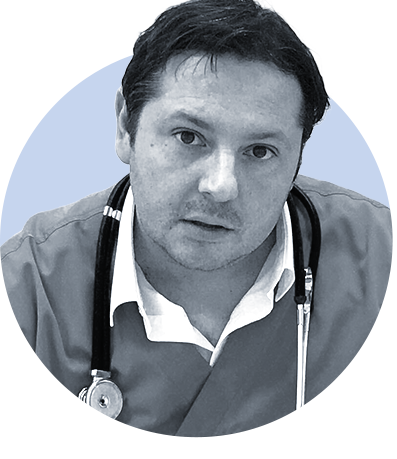Hayfever can also be called seasonal allergic rhinitis, and refers to an allergic reaction which can occur when a person is exposed to pollen. The symptoms of hayfever look similar to those of a cold, and include a runny nose, sneezing and itchy eyes.
Allergic reactions to other stimuli can provoke a similar response in the body, and an allergy sufferer could experience more extreme symptoms such as rashes, wheezing or coughing or asthma type symptoms too. Mild allergic reactions can be prevented by avoiding contact with the food or substance that triggers it, and discomfort can often be relieved by antihistamines, decongestants or creams. In the case of severe, life-threatening allergies, the sufferer must be injected with an epipen to avoid anaphylactic shock, and should avoid even touching the stimuli they are allergic to.
Below are some common medicines often used to treat hay fever and allergies. Please note, this is not an exhaustive list and other non-medical methods or lifestyle changes may be more suitable. If you would like to learn more about these options, then please click here. Before receiving medication you must answer a number of questions to asses your suitability. All questions are reviewed by a GMC registered doctor before a final decision is made. All medication is dispensed via a full regulated and registered UK pharmacy. All prices displayed on our site include the price of the medication and our doctors consultation fee.
Hayfever/Allergy
What is hayfever?
Hay fever is a type of allergy, it is an allergic reaction to pollen. The body can react to certain substances and foods which is known as an allergy. Allergies can develop at any age but they’re more common in children. A lot of children tend to grow out of their allergies whilst some adults may develop a reaction to something they were never previously allergic to. There are many types of allergies and it is very common to have an allergy to something. Hay fever is one of those common allergies which primarily affects the sinuses. Also known as allergic rhinitis, hay fever occurs seasonally when the grass, tree and weed pollen are high.
Allergies occur when the body is exposed to something that it reacts to. The symptoms happen when the body tries to protect itself from the allergen which it identifies as harmful and kicks the immune system into overdrive. Allergic reactions can be mild to severe and it depends on the type of allergy if the reaction is life threatening or not. The symptoms of hay fever are similar to a cold with a runny nose, sneezing and itchy eyes. Symptoms are usually mild and can be kept under control with medication, however, for some this allergy can affect a sufferers daily life and their ability to function as their symptoms can be extreme and be accompanied with tiredness, earache, headache and severely swollen eyes.
Allergies can also be particularly dangerous if you have other health conditions such as asthma. If your allergy is hindering your life you may need treatment to manage the symptoms.
Allergy UK have reported that 20% of the UK population have one or more allergies, and hay fever affects between 10% and 30% of adults. There are a number of common allergens which are found in our homes and outdoors including:
- Dust mites
- Animal hair
- Food, in particular nuts, fruit, shellfish, eggs and cow’s milk
- Insect bites and stings
- Medication
- Latex
- Mould
- Household chemicals
These allergens can provoke allergic reactions, asthma attacks and anaphylactic shock.
What is anaphylactic shock?
Anaphylactic shock or anaphylaxis is a severe allergic reaction that can be fatal. Symptoms of anaphylactic shock can develop quickly and suddenly when in contact with something that the body is allergic to. One of the most common triggers of anaphylactic shock is nuts and peanut allergy is one of of the most dangerous.
Symptoms of anaphylactic shock include:
- Fainting/lightheadedness
- Shallow or fast breathing, finding it difficult to breathe properly
- Wheezing
- Fast heartbeat
- Clammy skin
- Confusion/anxiety
- Loss of consciousness
- Hives which look like an itchy raised rash
- Feeling/being sick
- Swelling
- Stomach pain
All of the above are important signs to look out for if you or someone else is having an anaphylactic shock in order to get life saving treatment in time. Anaphylaxis should be treated as a medical emergency and there are methods to help prevent the reaction becoming life threatening. This includes using an adrenaline auto-injector such as an Doctor-4-U. You should, however, learn how to use the device properly.
What treatments are available for common allergies?
You can get tested for specific allergies by being referred to a specialist by your GP. Finding out what you are allergic to will help you to avoid the trigger and manage the symptoms. You should avoid the allergen all together to prevent a reaction, with hay fever this means avoiding the outdoors when you know the pollen count is high.
There are medications available to help keep the symptoms under control if you can’t avoid the allergens. Hay fever sufferers find it difficult to cope without medication as the triggers are unavoidable. Medication for allergies usually include antihistamines to prevent a reaction, decongestants to unblock the nose, lotions and creams to relieve red and itchy skin, and steroids to reduce inflammation. As well as Avamys nasal spray - contains a corticosteroid to reduce nasal inflammation
Most symptoms are mild but annoying and treatment can be very effective at relieving these symptoms. For severe symptoms your GP may recommend immunotherapy which involves exposing the allergy sufferer to the allergen in small amounts over a period of time. This is not suitable for everyone but in some cases it can help make symptoms milder and more manageable.
What is the best way to treat hayfever?
There are some simple things you can do yourself without medication to help prevent a reaction or reduce symptoms. Being outside in high pollen will trigger a reaction, it’s important to wash the pollen off your body and clothes after being outside to remove the pollen. Keep the inside of your home pollen-free as much as you can by keeping windows and doors shut and vacuuming regularly. Try to reduce the amount of time you spend outside, particularly during a high pollen count, and to avoid pollen getting trapped in your clothes do not dry them outside.
If none of these methods are enough to stop your symptoms, there are plenty of tablets, nasal sprays and eye drops available to calm irritation and inflammation. Antihistamines are the best type of medication for hay fever as it stops the body from producing histamine, a chemical that is released when the body detects something harmful and causes the body to react and swell as a defense.
Speak to our online doctors if your allergy symptoms are currently unmanageable as they can help with finding the right medication to prevent attacks and reduce symptoms.

















